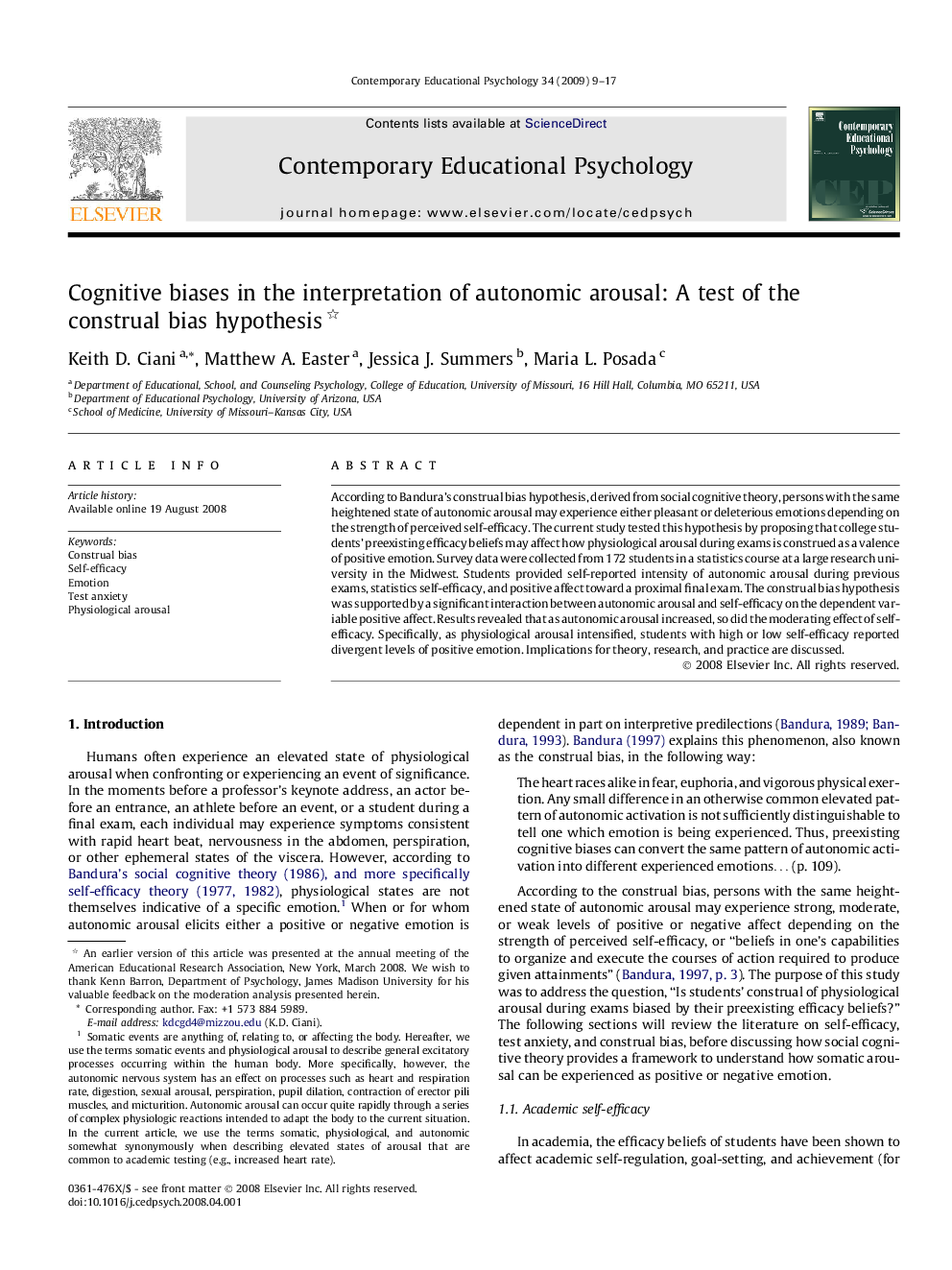| کد مقاله | کد نشریه | سال انتشار | مقاله انگلیسی | نسخه تمام متن |
|---|---|---|---|---|
| 352840 | 618628 | 2009 | 9 صفحه PDF | دانلود رایگان |

According to Bandura’s construal bias hypothesis, derived from social cognitive theory, persons with the same heightened state of autonomic arousal may experience either pleasant or deleterious emotions depending on the strength of perceived self-efficacy. The current study tested this hypothesis by proposing that college students’ preexisting efficacy beliefs may affect how physiological arousal during exams is construed as a valence of positive emotion. Survey data were collected from 172 students in a statistics course at a large research university in the Midwest. Students provided self-reported intensity of autonomic arousal during previous exams, statistics self-efficacy, and positive affect toward a proximal final exam. The construal bias hypothesis was supported by a significant interaction between autonomic arousal and self-efficacy on the dependent variable positive affect. Results revealed that as autonomic arousal increased, so did the moderating effect of self-efficacy. Specifically, as physiological arousal intensified, students with high or low self-efficacy reported divergent levels of positive emotion. Implications for theory, research, and practice are discussed.
Journal: Contemporary Educational Psychology - Volume 34, Issue 1, January 2009, Pages 9–17